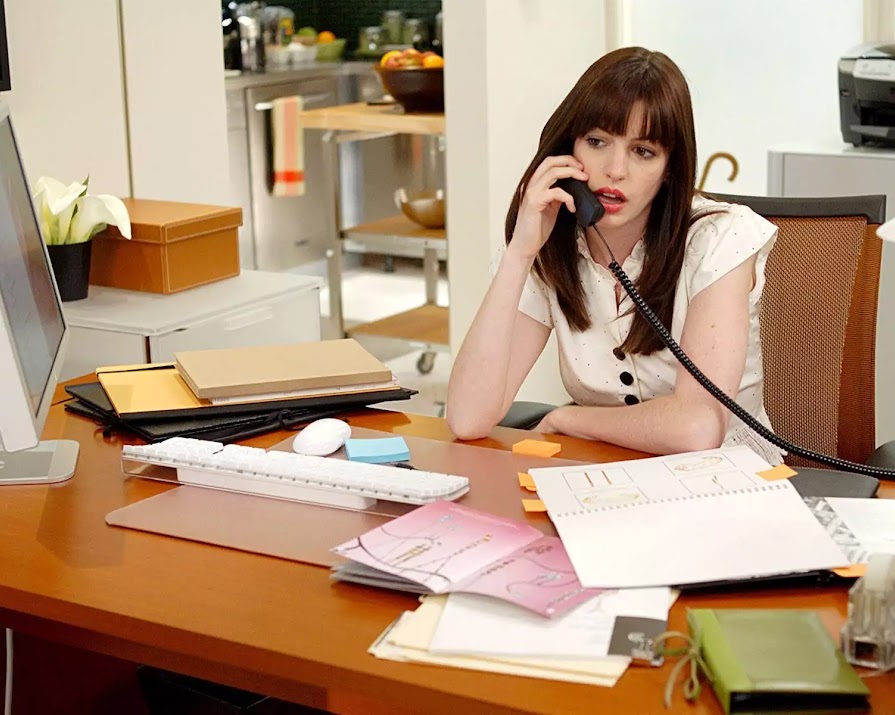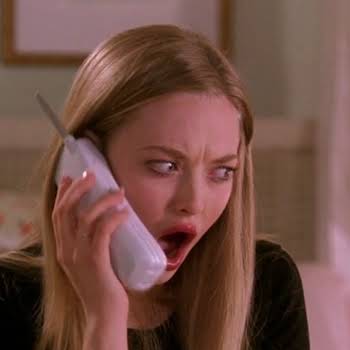By Sophie White
25th May 2021
25th May 2021
Do you find yourself talking about how busy and stressed you are? With stress, the words we speak are like spells we cast and Sophie White finds the language used around stress actually creates more anxiety.
I was having a panic attack in an airport. And just so you know, I am an alumnus of the school for nervous breakdowns so I know my panic attacks from my stress situations – I’d never use those words lightly. I don’t casually describe things as “a bit OCD”. And I don’t dilute a panic attack by applying the phrase to anything less than the real hideous deal.
The airport wasn’t busy, I wasn’t late. I was sitting waiting to board. And in that way of panic attacks, waiting to die. Yes, folks, it was a top-shelf panic attack. Everyone has their own brand of a panic attack, mine is very much of the I can’t breathe variety. I feel like I’m being smothered. Like being buried alive, my mouth filling with mud. I get very gaspy and my heart starts stopping for unnervingly protracted periods. Don’t tell me it’s “just” anxiety. I am being buried alive here, I want to shout. However bad the panic attack is, I never want to react externally. Some part of me is afraid that’ll escalate things, so instead, I go very still. I try to suck in some air and make the appropriate noises at relevant junctures in the convo my friend is blithely carrying on beside me.
“I just didn’t think it was as good as the first book…”
“Hmmm…totally,” I mutter as my internal monologue screams hysterically. I’m DYING, I’m DYING here and my heart gallops and stalls and gallops and stalls in my chest.
Once on the plane the attack still in full flight, I put on the audiobook of Matt Haig’s Notes On A Nervous Planet and that’s when I really lose it. Just listening to the rhetoric of stress is like putting a combustible close to a naked flame. I kick into the next level of panic, which for me is no longer “I’m dying” but the far creepier “I’m already dead” stage. I do not recommend.
Spells we cast
When I was able to reflect on the episode later it was interesting to note the impact Haig’s words had on me in that heightened state. I felt as though my ailing brain was hooked up to electricity and each word; PANIC; STRESS; MOUNTING; ESCALATING; ATTACK were like shocks to my system.
The words we speak are like spells we cast. They have true power over our experience because, on the most basic level, they alter our perception of an experience. After that episode subsided I thought “Well, that was terrifying” which was nearly enough to reactivate the spiralling anxiety. I tried a reframing technique. I thought “Well, that was unpleasant but manageable”. And it’s not a lie, it was manageable in that it passed, I weathered it without psychiatric intervention and prescription medication which is a good outing given my past track record. Sidenote: If you have ‘managed’ your episode WITH psychiatric intervention and prescription medication, it’s still managing it so woohoo, go you.
Of course, I made the rookie error of telling my mother about the episode (note I’ve abandoned the panic attack phrase) who was witness to my first nervous breakdown and is likely suffering some form of PTSD from that experience. I described the scenario, probably seeking some kind of reassurance.
“Jesus Christ, do you need to go back to John Of God’s? Would you think of medication again?”
Not the response I was looking for and nearly enough to bring on another episode. It was like bringing my garbage fire to someone who then tried to put it out by pouring petrol over it.
Being met with her anxiety gave me anxiety squared and I had to go running immediately to run off some of the terribly jangling panic hangover.
Flat out with work?
I find if I allow myself to be sucked into someone else’s heightened stress, it sticks to me even long after I leave them. That’s why the propensity that we all have now to talk about how busy and stressed we are is, for me, really toxic. One of the biggest changes I’ve made this year is to change my response to conversations. I find a question that comes up, again and again, is “Are you flat out with work?”
It’s a social tick, I think. Or maybe it’s the other person (it’s never a friend but more likely work acquaintance) dying to assert their busyness or communicating how in-demand they are. “I’m up the walls. I’m so stressed” is a pretty standard refrain at work events. And in the past, I’ve been sucked down this hole until, by the end of a casual exchange, we’re both hyperventilating about our own personal perceived stress. So I’ve changed tack. Now if someone asks me if I’m flat out, I just say “Nah, it’s great!” regardless of whatever deadline is looming or how much life admin I’ve been neglecting.
Deadline. Looming. Just look at that hideous word spell. It’s more like casting a curse frankly.
I don’t want to turn into one of those pathologically positive people who must turn every frown upside down but the words we use do matter. Beyond creating more anxiety by maxing out on heavy-handed descriptors like DREAD, PANIC, CATASTROPHIC DOOM (I’m giving myself a panic attack just writing this), there is also the flip side of minimising and diminishing a person’s experience. Take “It’s just anxiety”. A phrase that works in two directions. On the one hand, it is just anxiety, it alone won’t kill me, it really won’t. But on the flip side, f*ck “it’s just anxiety” because it truly is a difficult way to live and acknowledging that will go some way towards not beating ourselves up over it.























